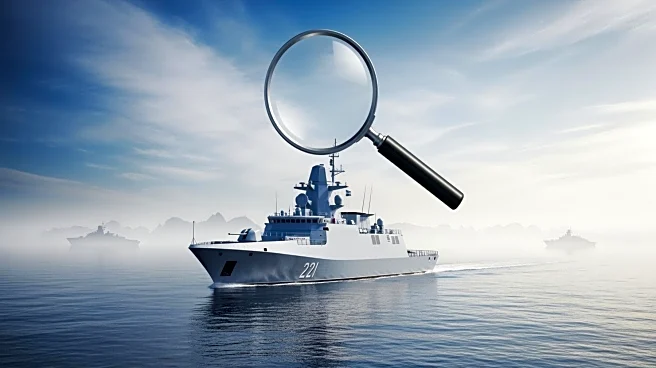What's Happening?
The European Union's diplomatic arm, the EEAS, is advocating for a maritime declaration to enhance inspection rights on Russia's 'shadow fleet' of oil tankers. This initiative aims to curb Russian oil and gas revenues used to finance the Ukraine war.
The proposal includes potential bilateral agreements with flag states for pre-authorized boardings. The EU's move follows actions by member states like France and Germany, which have already taken steps against suspect vessels. The shadow fleet is estimated to consist of 600 to 1,400 ships, with over 400 already sanctioned by the EU.
Why It's Important?
The EU's efforts to increase inspections of the shadow fleet are part of a broader strategy to enforce sanctions against Russia and limit its economic capabilities amid the ongoing conflict in Ukraine. By targeting the shadow fleet, the EU aims to disrupt a significant source of revenue for Russia, potentially impacting its ability to sustain military operations. This move also reflects the EU's commitment to maintaining pressure on Russia and supporting Ukraine, with potential implications for international maritime law and global energy markets.
What's Next?
The EU plans to finalize the draft declaration by the end of November, with discussions among foreign ministers scheduled. If adopted, the declaration could lead to increased maritime enforcement actions and further sanctions against Russia. The EU's approach may prompt reactions from Russia and other countries involved in the shadow fleet, potentially affecting diplomatic relations and international trade dynamics.















